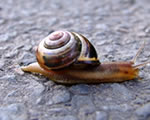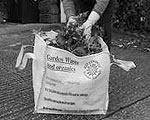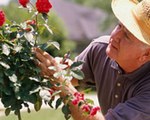 Go to main content
Go to main content
Archive Website of the UK government
Please note that this website has a UK government accesskeys system.
Main menu
Page menu
Environment and greener living

Controlling pests and weeds: greener choices

Pesticides can contain chemicals that harm people, wildlife and the environment, and can be dangerous if not used responsibly. Encouraging insects that eat pests, or plucking off slugs by hand can help you use less pesticides in your garden.
The wider issue
Although they are designed to kill pests and weeds, some pesticides can harm humans, wildlife and plants. They can also pollute water and poison aquatic life. It costs millions of pounds every year to remove pesticide residue from drinking water.
Ask yourself if you really need weed killer
Before you buy pesticides, ask yourself whether they are really necessary. Does your lawn have to be absolutely free of daisies and dandelions? Can you tolerate a few weeds in your borders? Gardens don’t have to be immaculate to be healthy and enjoyable.
Consider alternatives to pesticides
These are a few ideas for controlling pests in your garden without resorting to pesticides:
- you can pick slugs and some other pests off plants by hand
- try pulling up weeds, rather than reaching for the pesticides
- you can use beer traps to catch slugs
- covering young plants at night can protect them from some pests
Use companion plants to deter pests
Companion plants can help keep some pests away from your prized flowers or vegetables, so you don't need to use as many chemicals. Try:
- planting marigolds near vegetables – these can help keep greenfly and blackfly away
- planting garlic near roses – they can help ward off aphids
Visit the BBC Gardening website for more ideas on companion planting.
Encourage natural pest eaters

Over a third of people with a garden say they compost garden or kitchen waste
Some insects are great to have in the garden because they eat pests. For example, ladybirds eat aphids, which can damage your plants. You can encourage ladybirds by planting a small patch of nettles or leaving some plant debris around for them to hibernate in. Using pesticides responsibly and as little as possible helps to make sure the insects that are good for your garden aren't harmed.
The Natural England website has a series of leaflets on wildlife friendly gardening, available to download as PDF files.
Use pesticides with care
You should only use pesticides if you think they are really necessary. If you find you do need one, it’s important to use, store and dispose of it in the right way. Take advice from your garden centre or other retailer on the most suitable product for your needs. When using pesticides:
- always read the label on the pesticide and follow the instructions carefully
- don’t try to make the pesticide a bit stronger by using more than the instructions say – doing this could harm wildlife and the environment
- always wash your hands once you’ve finished using the pesticide
- store any unused pesticides safely away from pets and children, making sure that the container is properly sealed
- never pour unwanted pesticides down the drain – they will contaminate water sources and may harm wildlife
Your local council can give you advice on how to dispose of pesticides safely.
Sometimes pesticides are withdrawn from use, meaning they are no longer approved or recommended. If you’re thinking of using a pesticide you bought some time ago, use the link below to check it is still approved for use.

 Facebook
Facebook Twitter
Twitter StumbleUpon
StumbleUpon Delicious
Delicious Reddit
Reddit
